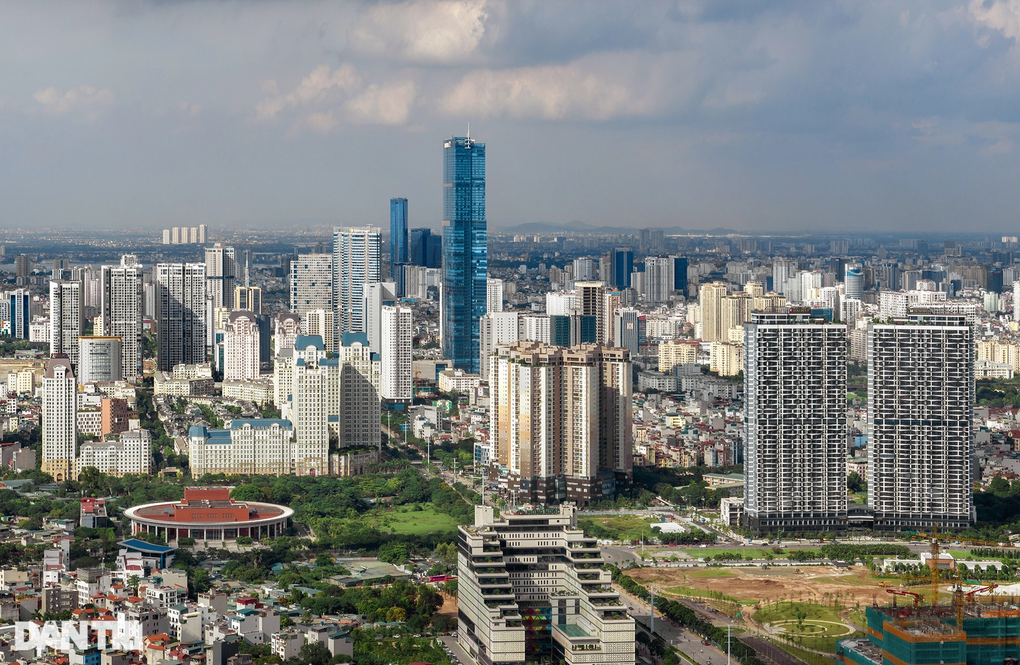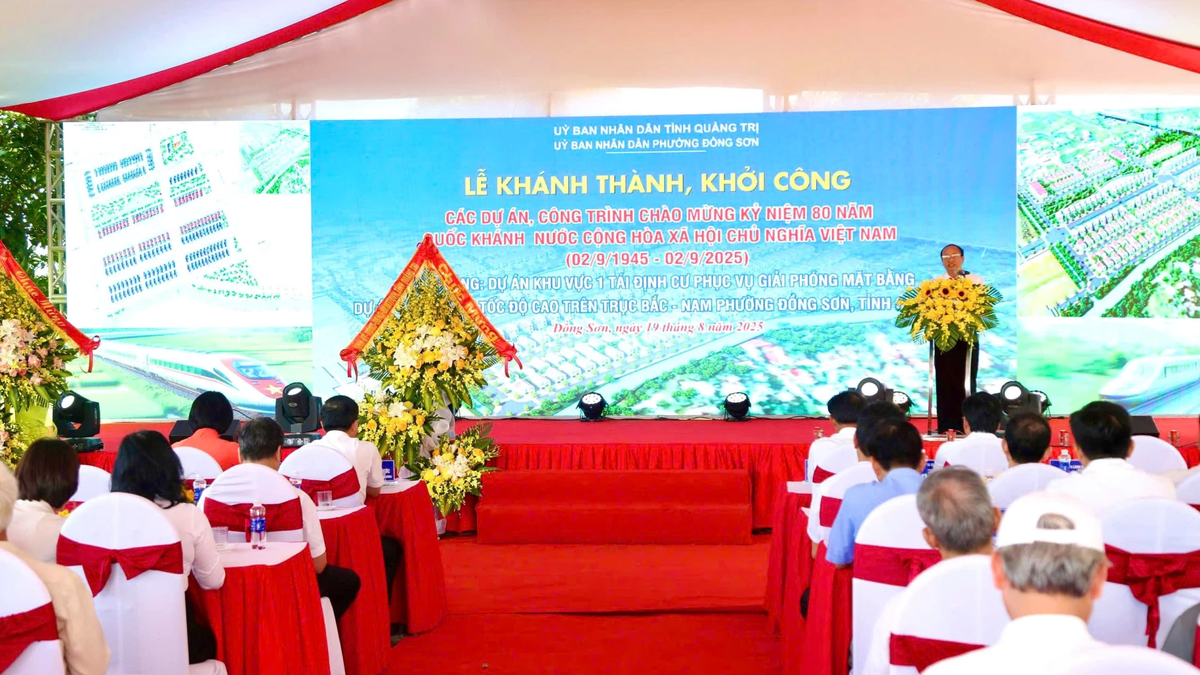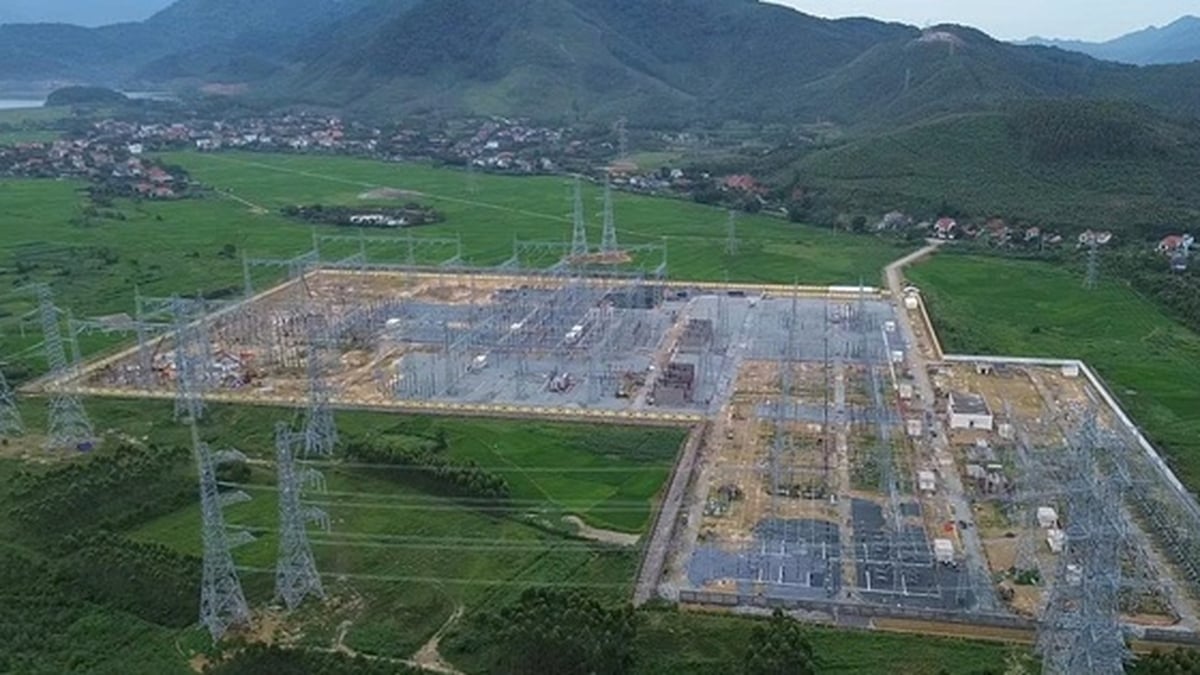At the workshop “Effective financial leverage - Housing opportunities for young people” organized by Thanh Tra Newspaper on June 26, Mr. Ha Quang Hung, Deputy Director of the Department of Housing and Real Estate Market Management ( Ministry of Construction ), said that recent surveys show that young people (22-40 years old) are becoming the main customer group in the housing market, gradually replacing the middle-aged group.
According to him, the demand for home ownership among young people is at an unprecedented high, both in terms of quantity and proportion in the structure of home buyers.
"Very few people have enough savings to buy a house by the time they reach 30 years old"
According to a representative of the Ministry of Construction, people's income growth has not kept up with the increase in housing prices, leading to limited real ownership for the majority of young people.
Accordingly, to buy an average house with an area of 70m2, selling price of 3-4 billion VND in big cities, young people need 20-25 years of income. This figure shows that the ratio of house price to income in Vietnam is very high, making it difficult for young people to access.
"Most young urban couples with an average income of 20-30 million VND/month have to rent a house or live with their family. Very few people have enough savings to buy a commercial house when they reach the age of 30 without financial support from their family or preferential credit programs," he said.
Analyzing the barriers, Mr. Hung said that the real estate supply is still limited and the price is high compared to the affordability of the majority of people, including young people. The reason is that projects face difficulties in investment procedures, the implementation of real estate projects in many localities is still slow, businesses face difficulties in credit capital, bond issuance and payment, etc.
The housing market mainly consists of commercial housing for sale, social housing for sale, rental and lacks models such as long-term rental, flexible rental purchase. According to him, young people have houses due to personal financial barriers, credit barriers. According to him, banks are willing to lend to buy houses, but the loan interest rate is still quite high, the loan term is not long enough compared to the demand.
"Only when there are preferential packages with low interest rates (5-6%/year) fixed in the beginning, will young people boldly consider taking out a loan to buy a house," said Mr. Hung. According to him, young people need long-term loans of 20-30 years to reduce the pressure of monthly debt repayment.

People's income growth has not kept up with the increase in housing prices (Photo: Ha Phong).
Ms. Ha Thu Giang, Director of the Department of Credit for Economic Sectors (State Bank), informed that there are currently 9 banks participating in the credit package of 145,000 billion VND, with interest rates 1.5-2% lower per year than normal interest rates to support the development of the social housing market. According to her, the latest lending interest rate is 5.9% per year and is continuously decreasing along with the general trend.
Banks are also directed to have preferential loan packages for people under 35 years old. Compared to the average interest rate of large banks, the first 5 years, the interest rate is 2%/year lower, 10 years is 1%/year lower.
According to Ms. Giang, when the units "roll up their sleeves" to coordinate, the disbursement turnover will be positive. However, the biggest difficulty now is to determine the project with a price suitable for this group to match their ability to pay.
"Therefore, coordination with localities and creating conditions from financial leverage of banks will bring about a peaceful life. The State Bank is taking the lead and coordinating with localities to have orientations suitable for people's incomes," Ms. Giang stated.
How to solve housing bottlenecks for young people?
Mr. Ha Quang Hung said that it is necessary to increase housing supply, review and perfect institutions and laws related to housing and the real estate market with commercial housing, ensuring consistency, synchronization and feasibility.
Along with that, effectively implement Decree No. 75/2025 on piloting commercial housing projects through agreements on receiving land use rights; resolve difficulties and problems in pending projects, especially in determining land prices, calculating land use fees, and compensation for site clearance.
Regarding social housing, according to him, localities need to implement and complete the targets for developing social housing and developing workers' accommodation in industrial zones and housing for armed forces according to the State's orientation.
One solution Mr. Hung emphasized is to develop long-term rental and hire-purchase models. In addition, it is necessary to provide financial support to buyers to increase their ability to accumulate and reduce the cost burden.
Another solution is to adjust personal income tax policy, increase family deductions for people with families and young children; allow partial deduction of interest on first-time home loans from taxable income. This is similar to a form of indirect support, helping young people who borrow to buy a house to reduce monthly financial pressure.

The demand for home ownership among young people is at an unprecedented high (Photo: Manh Quan).
Economist Nguyen Tri Hieu also proposed implementing measures to fundamentally solve the problem of the gap between income and housing prices. According to him, it is necessary to perfect the transparent and effective land finance policy system. The State needs to develop a thorough tax policy to combat speculation. He proposed applying real estate tax based on asset value to limit short-term speculation and encourage long-term investment.
In parallel, research is being done to apply a 20% tax on the difference between the purchase and sale price of real estate when the owner sells the property and to apply a high tax rate to the ownership of multiple properties other than residential properties and long-abandoned houses.
He also proposed to increase the supply of social housing by ensuring that at least 20% of land in commercial housing projects is reserved for social housing. In addition, he said that it is necessary to tighten the conditions for purchasing social housing to avoid speculation and strictly control the rental of social housing at high prices.
“Resolving the gap between income and housing prices requires a transparent and effective land finance policy system. It is necessary to balance the approach of market prices with people’s ability to pay, while increasing the supply of affordable housing and controlling speculative activities,” Mr. Hieu said.
Source: https://dantri.com.vn/kinh-doanh/chuyen-gia-nguoi-tre-phai-tich-luy-thu-nhap-20-25-nam-moi-mua-duoc-nha-20250626111158494.htm























![[Photo] General Secretary To Lam and President Luong Cuong attend the handover ceremony of the Presidential Office Headquarters](https://vphoto.vietnam.vn/thumb/1200x675/vietnam/resource/IMAGE/2025/8/19/a37cfcbd301e491990dec9b99eda1c99)





![[Photo] Close-up of the first International Financial Center building in Ho Chi Minh City](https://vphoto.vietnam.vn/thumb/1200x675/vietnam/resource/IMAGE/2025/8/19/3f06082e1b534742a13b7029b76c69b6)

![[Photo] Prime Minister Pham Minh Chinh attends the opening ceremony of the National Data Center](https://vphoto.vietnam.vn/thumb/1200x675/vietnam/resource/IMAGE/2025/8/18/b5724a9c982b429790fdbd2438a0db44)








































































Comment (0)